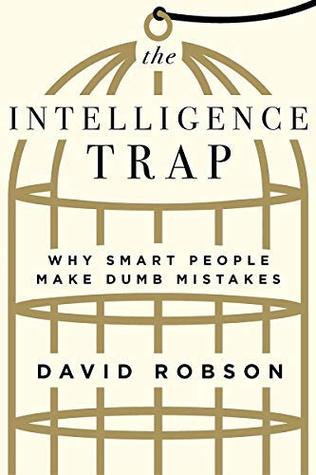More on this book
Community
Kindle Notes & Highlights
If you consider classrooms in the UK and US, for instance, our mental worth is often judged by who can put their hand up quickest—giving us the subtle signal that it’s better to go with an immediate intuitive response without reflecting on the finer details. And you are not going to be rewarded for admitting that you don’t know the answer; intellectual humility is actively discouraged.
students were offered a strategy to solve a specific kind of mathematical problem. Thanks to a change in a single word, children told that this was just “one way to solve this equation” performed better than those told it was “the way to solve this equation”—they were about 50 percent more likely to get the correct answer. They also showed a deeper understanding of the underlying concept and were better able to determine when the strategy would and wouldn’t work.17 The same applies for the humanities and social sciences. Geography students told that “this may be the cause of the evolution of
...more
Space out your studies, using shorter chunks distributed over days and weeks. Like the postmen in Baddeley’s initial experiment, your progress may feel slow compared with the initial head-start offered by more intensive study. But by forcing yourself to recall the material after the delay between each session, you will strengthen the memory trace and long-term recall. • Beware of fluent material. As discussed previously, superficially simple textbooks can lead you to believe that you are learning well, while, in fact, they are reducing your long-term recall. So try to study more nuanced
...more
This highlight has been truncated due to consecutive passage length restrictions.
philosophy of deliberately embracing nuance and complexity in learning can be applied to any context.
Those more domineering people don’t have to be excessively loud or rude, but if they give the impression that they know everything already, other team members will feel they have nothing to contribute, which deprives the group of valuable information and alternative points of view.10 Untempered enthusiasm can be a vice.
if team members clearly understand their place in the pecking order, overall group performance will be boosted; but this is true only if team members themselves feel that their opinions are valued, and that they can challenge their leaders in the event of problems arising or poor decisions being taken.
the scientific research at least suggests that we need to place a greater emphasis on interpersonal skills that will enhance the team’s collective intelligence, even if that means rejecting someone who scores far higher on more standard measures of ability. That may include judging someone’s emotional perceptivity and communication skills—whether they draw people out and listen, or whether they have a tendency to interrupt and dominate. If you are leading a multinational team, you might also choose someone with high cultural intelligence (which we explored in Chapter 1) since they would find
...more
This stupidity is often functional, they say, because it can come with some benefits. Individuals may prefer to go with the flow in the workplace to save effort and anxiety, particularly if we know there will be incentives or even a promotion in this for us later. Such “strategic ignorance” is now well studied in psychological experiments where participants must compete for money: often participants choose not to know how their decisions affect the other players.8 By remaining in the dark, the player gains some “moral wiggle room” (the scientific term) that allows them to act in a more selfish
...more
The German language, incidentally, has a word for this: the Fachidiot, a one-track specialist who takes a single-minded, inflexible approach to a multifaceted problem.
One of the biggest challenges was Nokia’s operating system, Symbian, which was inferior to Apple’s iOS and unsuitable for dealing with sophisticated touchscreen apps, but overhauling the existing software would take years of development, and the management wanted to be able to present their new products quickly, leading them to rush through projects that needed greater forward planning.
The US Navy, meanwhile, has employed the SUBSAFE system to reduce accidents on its nuclear submarines. The system was first implemented following the loss of the USS Thresher in 1963, which flooded due to a poor joint in its pumping system, resulting in the deaths of 112 Navy personnel and 17 civilians.29 SUBSAFE specifically instructs officers to experience “chronic uneasiness,” summarized in the saying “trust, but verify,” and in more than five decades since, they haven’t lost a single submarine using the system.30
“collective mindfulness.” The underlying principle is that the organization should implement any measures that encourage its employees to remain attentive, proactive, open to new ideas, questioning of every possibility, and devoted to discovering and learning from mistakes, rather than simply repeating the same behaviors over and over.
Study after study has shown that encouraging people to define their own problems, explore different perspectives, imagine alternative outcomes to events, and identify erroneous arguments can boost their overall capacity to learn new material while also encouraging a wiser way of reasoning.1
A Taxonomy of Stupidity Bias blind spot: Our tendency to see others’ flaws, while being oblivious to the prejudices and errors in our own reasoning. Cognitive miserliness: A tendency to base our decision making on intuition rather than analysis. Contaminated mindware: An erroneous baseline knowledge that may then lead to further irrational behavior. Someone who has been brought up to distrust scientific evidence may then be more susceptible to quack medicines and beliefs in the paranormal, for instance. Dysrationalia: The mismatch between intelligence and rationality, as seen in the life story
...more
This highlight has been truncated due to consecutive passage length restrictions.


